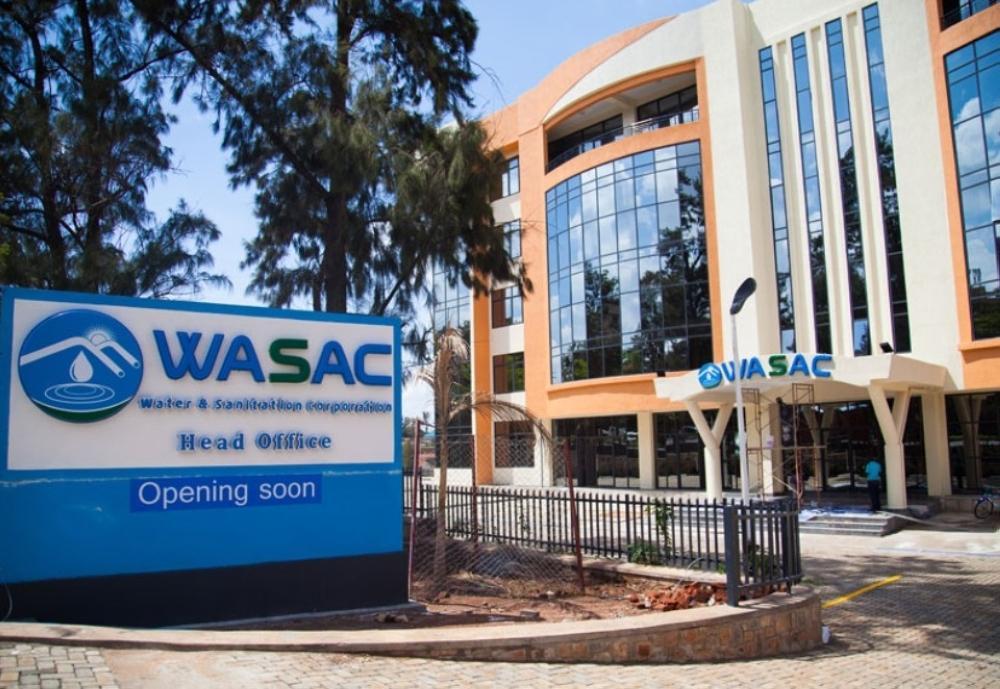Africa-Press – Rwanda. The government has confirmed that the restructuring process of the Water and Sanitation Corporation (WASAC) is entering its final phase after years of operational challenges that have hindered effective water service delivery across Rwanda.
According to the Minister of Infrastructure Jimmy Gasore, the reforms are focusing on strengthening leadership, professionalising staff, and putting in place robust financial and asset management systems.
“When people manage resources without proper systems, problems arise. That is why we are fast-tracking WASAC’s reinforcement at all operational levels,” Minister Gasore said, noting that the government is actively recruiting qualified personnel and upgrading internal procedures to ensure accountability.
“We have agreed on the composition of the new WASAC Board of Directors with all relevant institutions. Members have already been approved, and the final step is the official announcement,” he added.
According to the minister, the reform has taken longer than anticipated and most senior positions within WASAC are still held in acting capacity.
He revealed that efforts are underway to build a more competent finance department, citing the relocation of Rwanda Energy Group Limited (REG)’s former Chief Finance Officer to WASAC after REG successfully addressed past audit concerns.
Gasore also pointed out that recurrent audit findings have repeatedly identified corruption in the water sector.
“To prevent corruption, we have established a committee dedicated to handling citizen complaints related to meter issuance, to ensure that people receive services without undue delays,” he said.
He added that authorities are exploring ways to enable private companies to also sell water meters, while the Rwanda Standards Board (RSB) will be responsible for monitoring the quality of imported meters.
Senator Laétitia Nyinawamwiza welcomed the reforms, recalling that long-standing governance issues at WASAC have dated as far back as 2019, when the Auditor General’s report highlighted institutional weaknesses.
“We need a strong board capable of steering the utility to improve performance,” she said.
Her fellow senator, Frank Habineza, expressed concerns over water losses, noting that “at least 44 percent of water is lost due to leakages from old pipes, illegal connections, and faulty meters, while the company continues to incur significant treatment costs.”
The Auditor General’s latest report revealed that 56 percent of new customers were not connected within WASAC’s two-day service charter timeline.
Instead, they waited between 30 and 298 days despite meeting all requirements. Additionally, nearly 4,000 customers remained unconnected for periods of up to 463 days, with WASAC attributing the delays to shortages of water meters.
Alongside governance reforms, WASAC has set performance targets to accelerate access to clean water.
Lawmakers have repeatedly raised concerns about persistent leakages and supply inefficiencies that limit access to clean water despite growing demand.
They underscored that more than 39 percent of water is either wasted or not accounted for while the utility reportedly produced over 76 million m3 of water in the 2023/2024 fiscal year, yet losses totalled more than 30 million m3, equivalent to approximately Rwf9.77 billion at the lowest tariff rate.
Structural weaknesses have also been linked to corruption.
Also in a broader anti-corruption operation announced in June, WASAC confirmed it had dismissed 27 employees involved in bribery cases across multiple districts following the 2024 Rwanda Bribery Index, which ranked the utility among the most affected institutions, with a corruption prevalence rate of 5.9 percent. Fifty cases were uncovered, with others still pending in court.
Minister Gasore assured the parliament that strengthening institutional management will help break recurring cycles of inefficiencies and improve service delivery.
For More News And Analysis About Rwanda Follow Africa-Press






